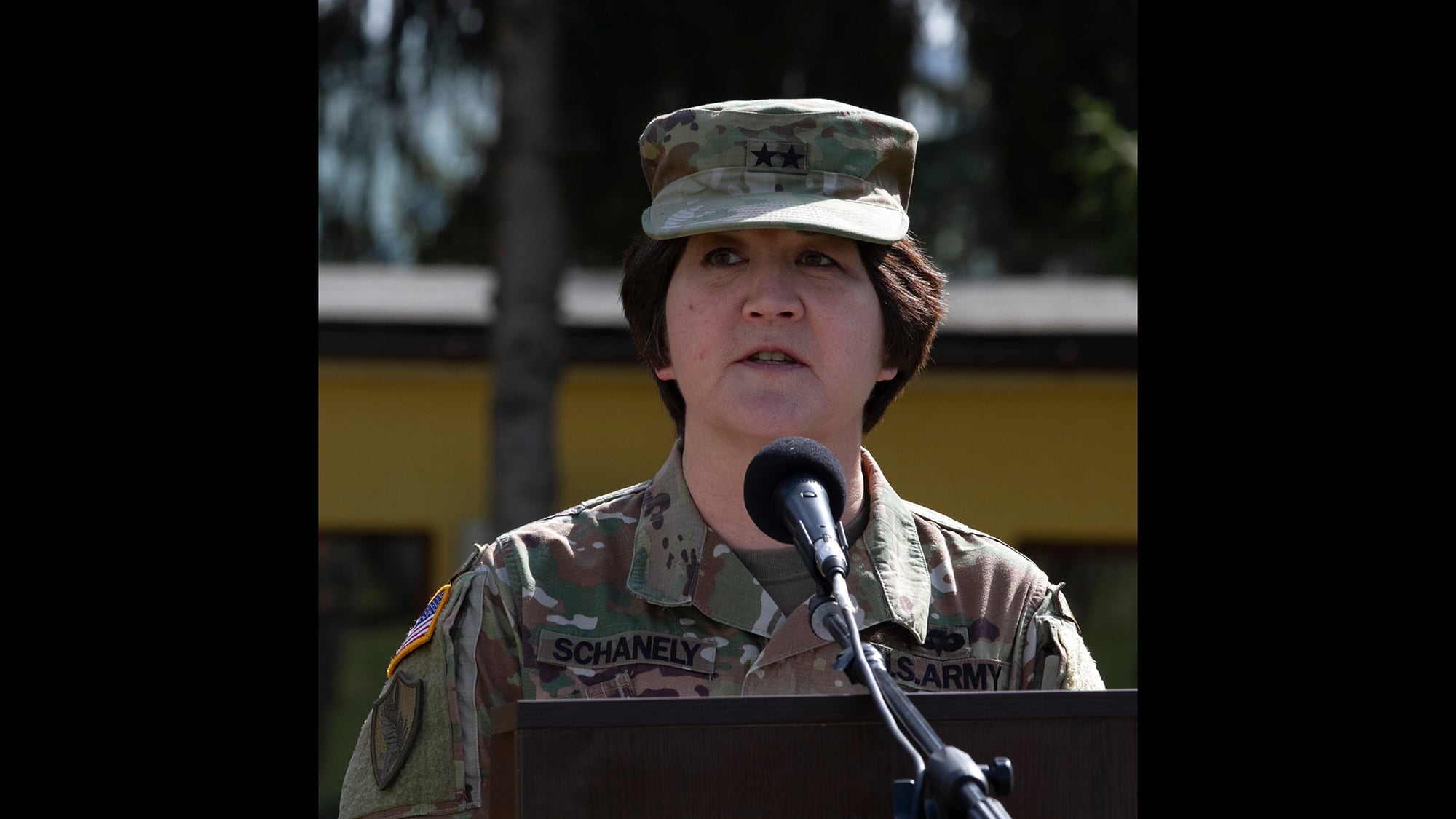An investigation into an Army Reserve command’s mishandling of sexual harassment and assault allegations found significant shortcomings in the unit’s practices and resulted in a total of 15 soldiers being punished, including a major general.
The inquiry into the Illinois-based 416th Theater Engineer Command started in early 2020 following allegations that the unit’s leaders had improperly conducted internal investigations of sexual assault allegations rather than refer them to outside investigators, as required by Pentagon policy.
“The investigation revealed numerous shortfalls and found various individuals and units improperly handled reports of sexual assault and harassment,” said Maj. Gen. Greg Mosser, deputy commander of Army Reserve Command, during a Monday press briefing ahead of the investigation’s release.
The 416th TEC’s commander, Maj. Gen. Miyako Schanely, has relinquished command and received a formal memorandum of reprimand from Gen. Joseph M. Martin, the Army vice chief of staff.
Martin also sanctioned two other senior leaders for their performance failures, though officials declined to name the individuals.
Amy Braley Franck, a civilian victim advocate with the 416th TEC, told the Associated Press last year that the command launched internal investigations into at least two sexual assault complaints rather than refer them to Army CID, as required.
In another case, the command put an alleged victim on a firing range with a person she previously accused of sexual harassment, which made her fear for her safety, the AP reported.
The investigation found that Schanely, who had been suspended in June, failed to properly implement the Sexual Harassment Assault Response Prevention program at the unit.
RELATED

In addition to Schanely and the two unnamed leaders, twelve soldiers and three civilians face adverse administrative action from Army Reserve Command following the investigation, according to Mosser.
Of the twelve punished soldiers, seven received general officer memorandums of reprimand, and five received adverse counseling statements.
The investigation also found the command had “challenges” in maintaining the staffing and resources necessary to properly administer its SHARP program, Mosser said.
The general did not specify any changes that Army Reserve leaders would make to address the staffing problems, citing a lengthy “vetting process” that keeps positions vacant “longer than we would like.”
Administrative punishments such as GOMORs can — but don’t always — halt a soldier career progression.
Mosser emphasized that commanders could utilize the GOMORs and counseling statements to involuntarily separate the soldiers from the military, but he told Army Times he “can’t comment on” whether any of the soldiers are currently face separation proceedings.
General officers in the military’s reserve components have resigned over similar allegations in the past.
The Wisconsin National Guard’s commanding general stepped down in 2020 after an investigation into how his command handled sexual assault claims. And a Florida Army National Guard general resigned and retired in 2019 amid an investigation into similar claims, though investigators could not substantiate the allegations.
The 416th Theater Engineer Command is based in Darien, Illinois, and has more than 10,000 assigned soldiers distributed throughout the western part of the country.
Sexual assault remains a critical issue across the Army. Soldiers made 3,250 reports of sexual assault during fiscal year 2020, according to Defense Department data.
Davis Winkie covers the Army for Military Times. He studied history at Vanderbilt and UNC-Chapel Hill, and served five years in the Army Guard. His investigations earned the Society of Professional Journalists' 2023 Sunshine Award and consecutive Military Reporters and Editors honors, among others. Davis was also a 2022 Livingston Awards finalist.




